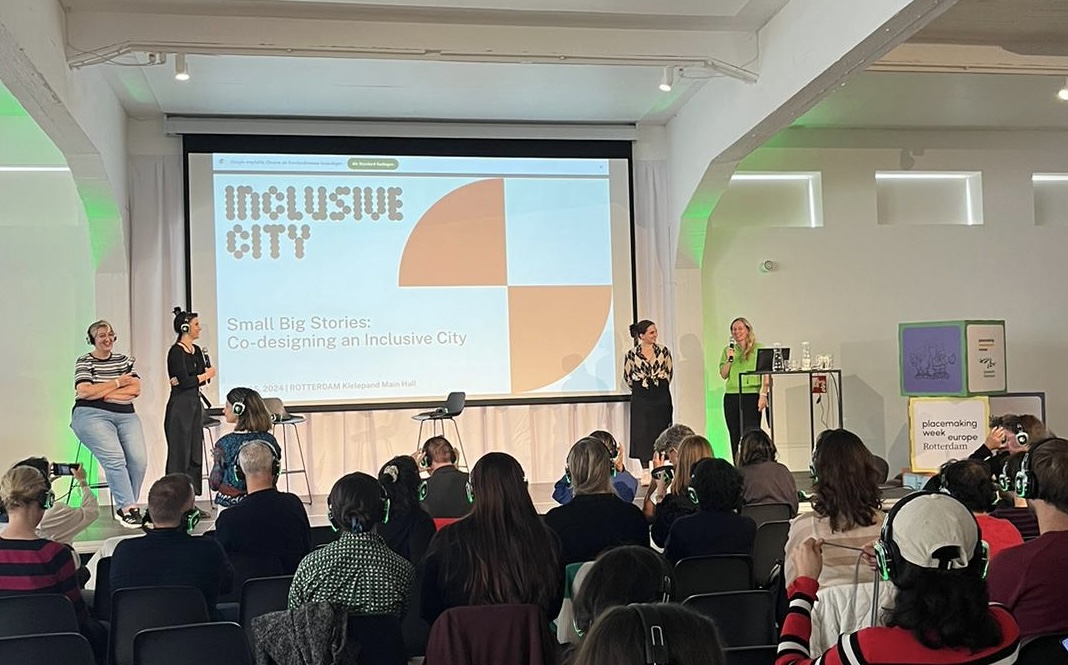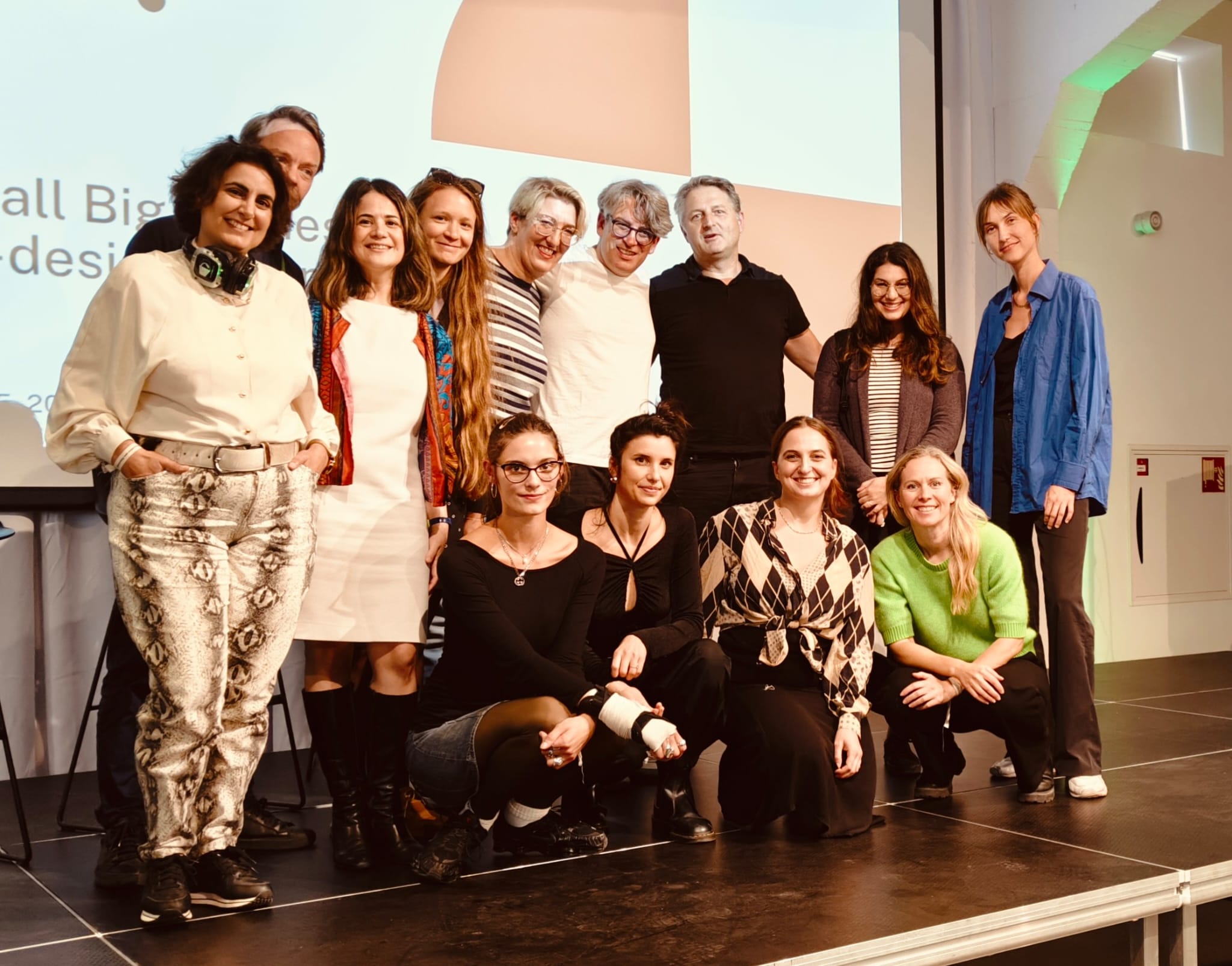Inclusive City
Critical Placemaking for Inclusive Cities
Year
2024-2026
Status
ongoing
Location
Vienna, Austria; Budapest, Hungary; Rome, Italy; Rotterdam, Netherlands; Oslo, Norway
Cooperation
Bykuben- Oslo Kommune
Partner
DUT (Driving Urban Transition (DUT) and Österreichische Forschungsförderungsgesellschaft (FFG)
EN
Inclusive City is a three-year European research and innovation project funded under the Driving Urban Transitions (DUT) Partnership 2022 call. The project brings together 15 partners from five European cities—Vienna, Rome, Budapest, Rotterdam, and Oslo—working to advance inclusive urban development through sustainable and participatory placemaking. In Austria, Inclusive City is funded by the Austrian Research Promotion Agency (FFG).
The project builds on the outcomes of the PlaceCity project (JPI Urban Europe), further developing and testing placemaking approaches in diverse urban contexts. It is embedded in the broader goals of the DUT framework, particularly the 15-minute city concept, which aims to create more accessible, liveable, and climate-conscious urban environments. Inclusive City brings a critical dimension to this model by addressing the question of who gets to access, use, and shape public space—and how placemaking processes can better include those who are often excluded.
Superwien Urbanism serves as the overall coordinator of the Inclusive City consortium, supporting cooperation and knowledge exchange between partner cities and ensuring that local initiatives contribute to a shared European learning process.
In Vienna, Inclusive City is implemented with national partners Eutropian and the Social Design Studio. The Urban Living Lab (ULL) is situated along the Donaukanal, a prominent but highly contested public space in the city. The Vienna ULL explores how inclusive placemaking strategies can respond to current tensions—such as the canal’s increasing commercialization, the scarcity of green and accessible space, and competing uses between different social groups. The pilot specifically considers the experiences of children and elderly residents, who are more reliant on their immediate surroundings and often face challenges in navigating or accessing public spaces.
Working closely with local stakeholders and communities, the Vienna ULL combines research, engagement, and creative experimentation to investigate how the Donaukanal can evolve as a more open, inclusive, and socially just waterfront. The insights generated in Vienna are shared across the other city labs, contributing to a broader understanding of how inclusive placemaking tools can be adapted and applied in different European settings.
The Inclusive City project officially launched with a kick-off meeting in Vienna in May 2024, gathering the full consortium to set goals and begin the first phase of work. The next international exchange will take place in Rotterdam during Placemaking Week Europe (September 2024), continuing the dialogue between cities and testing new ideas for inclusive public space development.
DE
Inclusive City ist ein dreijähriges europäisches Forschungs- und Innovationsprojekt, das im Rahmen des Driving Urban Transitions (DUT) Partnership Calls 2022 gefördert wird. Das Projekt vereint 15 Partnerorganisationen aus fünf europäischen Städten – Wien, Rom, Budapest, Rotterdam und Oslo – mit dem Ziel, inklusive Stadtentwicklung durch nachhaltiges und partizipatives Placemaking voranzutreiben. In Österreich wird Inclusive City durch die Österreichische Forschungsförderungsgesellschaft (FFG) finanziert.
Das Projekt baut auf den Ergebnissen des PlaceCity Projekts (JPI Urban Europe) auf und entwickelt inklusive Placemaking-Ansätze in unterschiedlichen urbanen Kontexten weiter. Es ist Teil der übergeordneten Zielsetzung der DUT-Partnerschaft, insbesondere des Konzepts der 15-Minuten-Stadt, das lebensnahe, gut erreichbare und klimafreundliche Stadtteile fördern soll. Inclusive City ergänzt diesen Ansatz um eine soziale Dimension: Wer hat Zugang zu öffentlichen Räumen – und wer wird bislang zu wenig gehört?
Superwien Urbanism koordiniert das Gesamtprojekt und unterstützt die Zusammenarbeit sowie den Wissensaustausch zwischen den Partnerstädten. Die lokale Umsetzung in Österreich erfolgt gemeinsam mit den Partnern Eutropian und dem Social Design Studio.
In Wien liegt der Fokus auf einem Urban Living Lab (ULL) entlang des Donaukanals – einem zentralen, stark frequentierten, aber auch umkämpften öffentlichen Raum. Das Wiener ULL untersucht, wie inklusive Placemaking-Strategien auf aktuelle Herausforderungen reagieren können: etwa auf die zunehmende Kommerzialisierung, den Mangel an zugänglichen Grünräumen und konkurrierende Nutzungsansprüche. Besonderes Augenmerk liegt auf den Bedürfnissen von Kindern und älteren Menschen, die stark auf ihr direktes Wohnumfeld angewiesen sind und oft mit räumlichen Barrieren konfrontiert werden.
In enger Zusammenarbeit mit lokalen Akteur*innen und der Stadtgesellschaft werden partizipative Werkzeuge, kreative Interventionen und raumbezogene Forschungsmethoden eingesetzt, um den Donaukanal als offenen und gerechteren öffentlichen Raum weiterzuentwickeln. Die Erfahrungen aus Wien fließen in den Austausch mit den anderen Städten ein und tragen zur Entwicklung europaweit anwendbarer Werkzeuge für inklusives Placemaking bei.
Das Projekt startete mit einem Kick-off-Treffen in Wien im Mai 2024, bei dem sich das internationale Konsortium über gemeinsame Ziele und erste Schritte austauschte. Der nächste Meilenstein ist ein internationales Projekttreffen bei der Placemaking Week Europe in Rotterdam im September 2024, bei dem der Austausch zwischen den Städten weiter vertieft wird.
Instagram: @inclusivecity_eu https://www.instagram.com/inclusivecity_eu/
LinkedIn: InclusiveCity-EU https://www.linkedin.com/company/inclusivecity-eu/´
PlaceCity-Projekt: https://superwien.com/portfolio/placecity/
DUT-Partnership: https://dutpartnership.eu/






